RESOURCE LIBRARY
Welcome to the PLEJ Resource Library
We know that ensuring elections run well requires prompt and effective action. That’s why we’ve curated this library of nonpartisan, generic resources. These resources highlight industry best practices around operational response and effective voter communications and are customizable to any election office. Check with your state or county attorney to see if you’re able to use them.
Operational Forecasting Tools | Training Modules | Toolkits and Resources
Looking for something specific? Search for a keyword on this page:
Operational Forecasting Tools
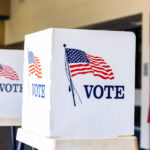
PLEJ and the Engineering for Democracy Institute (EDI) at The University of Rhode Island have partnered to create a new publicly available “Wait to Vote Estimator.” This nonpartisan tool allows election offices anywhere to plan ahead for in-person voting by estimating wait times for constituents and allows voters to estimate how long they will wait in line based on several factors.
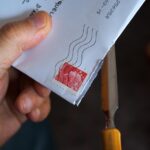
Ever wonder how long it takes to count vote-by-mail ballots after they’ve been received? Or, what happens if you have to adjust resources along the way? PLEJ and EDI have created a new publicly available tool to help election offices plan the time to process and count mail ballots—from arrival through verification, scanning, and tabulation—based on resources available.

Whether you’re planning ahead for an upcoming election, or looking to reevaluate your facility and storage systems, this new, publicly available tool from PLEJ and EDI allows you to input the quantity of equipment, materials, and archives you expect, and will return an estimate of the warehouse space required for that particular vote-by-mail (or similar) processing facility.
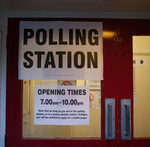
This publicly available, interactive tool allows you to map the layout and setup of voting equipment within an in-person polling location. Users can generate a custom, to-scale model of their space, incorporate key elements like electrical outlet availability, doors, and windows, or select from common layout designs. These designs can be printed and shared with polling location leads to facilitate setup.

Election Security Planner
Operational Resource
A joint project of the Center for Tech and Civic Life, PLEJ, the Elections Group, and Protect Democracy, this publicly available, interactive tool helps election officials, and their IT teams, identify, understand, and prioritize cybersecurity solutions. While designed to be comprehensive, this questionnaire is for informational purposes only and it may not cover all your needs.
Training Modules

Data Empowerment
Training for Election Officials
Data Empowerment for Election Officials is a publicly available training module created by PLEJ and EDI to help large election jurisdictions build real-world data skills. Through hands-on R exercises, the program shows election offices how to transform operational data into actionable tasks — improving staffing decisions, resource allocation, and the overall voting experience.
Toolkits and Resources

Media Engagement
Toolkit
Trust and transparency ultimately benefit the audience that both election administrators and journalists serve: the voting public. From what to wear to how to prepare, this toolkit covers general guidelines, best practices, and tips around: building media relationships, earning coverage, preparing for interviews, staying on track during interviews, and following up afterwards.

Host a Media Day
Toolkit
An Election Media Day is a proactive communications strategy that equips trusted messengers with accurate, timely election information—before inaccurate information or voter confusion can take hold —by inviting external stakeholders to engage directly with the election office. This generic toolkit helps you plan, prepare for, and execute, a successful media day.

Video Explainers
Issue Guide
Local election administrators know that educating voters about the election process is important. One way to educate voters is by making a short educational video on key election administration processes. A sample generic script that can help you get started has been included in blue below. We encourage you to customize it based on the particulars of your jurisdiction.

Mindfulness & Wellness
Issue Guide
Election work is complex, and staying focused and calm under pressure is vital. Mindfulness helps you stay centered, sharpen mental clarity, and reduce stress, allowing you to serve your community with confidence. By integrating simple mindfulness practices into your daily routine, you can better manage complex tasks, make sound decisions, and stay grounded under pressure.

Election Day Comms
Issue Guide
As an election official, communicating with voters, media, and other community stakeholders is important. This generic, nonpartisan document covers a wide range of situations and scenarios – from precinct closures, delays in counting, protests, and security breaches – and provides sample statements to help guide your discussions with key audiences on what to expect.

Post-Election Comms
Issue Guide
As an election official, communicating with voters, media, and other community stakeholders is important. This generic, nonpartisan document provides sample statements to help guide your discussions with key audiences on what to expect after Election Day until results are certified, like the differences between official and unofficial results or projections and actual counts.

Public Records Requests
Operational Toolkit
Handling public records requests efficiently and transparently is an important responsibility of elections administrators. Doing so maintains public trust and ensures compliance with legal requirements. This generic, nonpartisan resource offers best practices around planning for and responding to public records requests, as well as guidance for communicating with the public.

Public Records Stories
Issue Guide
Local election officials (LEOs) possess a wealth of stories within their collection of public records, and this presents an opportunity for media engagement and earned media coverage. This resource is a “ROADMAP”, which walks through how election administrators might engage with the media to tell stories about their public records and data.
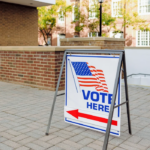
Polling Place Closures
Operational Toolkit
As an elections official, ensuring continuity of operations after a polling place closure (whether planned or not), requires prompt and effective action. This generic, nonpartisan resource includes operational response best practices as well as starter templates for social media, press releases, and voter-facing information that can be easily adapted for any election office.

Managing Bomb Threats
Issue Guide
The following best-practices are for election offices who may find themselves facing questionable bomb threats and who must work with law enforcement to immediately verify that the voting location is safe, without hindering participation of voters in line at the polling place. The most important practice is to call law enforcement immediately, and to coordinate with them to ensure safety.

Cybersecurity Services
Issue Guide
To address the challenges of evolving election security needs and reduced federal support, this document describes essential election operations cybersecurity services available using a paid service model, in order of priority. The vendor information provided in this document is for convenience only. Listing a vendor is not intended to be an endorsement of their products or services.

Candidate Removal
Issue Guide
Situations may arise where a candidate withdraws and asks to removed from the ballot. As an election official, reassuring voters, media, and other community stakeholders during and around candidate changes is important. This document includes generic responses and tips based on best practices to help guide your discussions with key audiences.
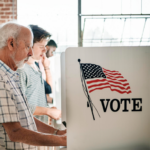
Candidate Replacement
Issue Guide
Situations may arise where an expected candidate is being replaced by a different candidate. Election offices can use these best practices when responding to candidate changes. They include a holding statement, which can easily be adapted based on jurisdiction needs and turned into a press release, as well as some FAQs an election office might receive.

Candidate Issues
Operational Toolkit
Handling candidate or campaign issues, such as a candidate being removed from the ballot or being disqualified, can be a critical task for elections officials. This generic, nonpartisan resource contains a set of possible candidate issues and a sample step-by-step operational response, as well as starter templates for social media, news releases, and voter-facing information.

Drop Box Emergencies
Issue Guide
With ballot drop boxes, emergencies and other incidents can pose a unique challenge for local election officials. This nonpartisan guide offers best practices from around the country to help protect against emergency situations and, if confronted with an issue, to respond swiftly and effectively to mitigate its impact and reassure the public of your commitment to a secure election.

Drop Box Observation
Operational Toolkit
This generic, nonpartisan resource includes operational response best practices for engaging with dropbox observers. These can be easily adapted for any election office and provide a starting place for communication with voters about drop box observers. We encourage you to adapt them to your jurisdiction and to consult your state, county, or city attorney about relevant statutes.

Suspicious Mail & Delays
Issue Guide
As an election official, communicating with voters, media, and other community stakeholders is important. This generic, nonpartisan document provides a sample statement to help guide your discussions with key audiences on mail ballots and reported delays. We encourage you to customize the material below based on the particulars of your jurisdiction.

Authentic Voter Rolls
Issue Guide
As an election official, communicating with voters, media, and other community stakeholders is important. This generic, nonpartisan document provides sample statements to help guide your discussions on the authenticity of the voter rolls, election integrity, and security. We encourage you to customize the material below based on the particulars of your jurisdiction.

Mass Voter Challenges
Operational Toolkit
Elections officials are increasingly encountering organized, broadly-scoped efforts to challenge the legitimacy of voter registrations and voter rolls. This generic, nonpartisan resource offers best practices on how to receive, process, and respond to these mass voter challenges, as well as starter templates for social media, news releases, and voter-facing information.

Ballot Issues
Operational Toolkit
This toolkit outlines steps that election officials can take to help ensure quick and comprehensive responses to ballot delivery or content issues as they arise. It is a nonpartisan resource that includes operational best practices, starter templates for social media, and news releases. This toolkit provides a starting place and can be adapted for jurisdictional needs.

Unexpected Issues
Issue Guide
Although local elections officials create extensive contingency plans to ensure issue-free, smooth elections, there are occasionally unexpected issues that arise or instances of human error in the process. Communication can play a critical role in heading off inaccurate information, reiterating the security and accuracy of the process, and highlighting the ways in which the process is transparent.

Defusing Situations
Issue Guide
Ensuring tense situations are handled professionally and respectfully is essential to maintaining a safe and supportive atmosphere for everyone involved. This guidance provides election officials with practical de-escalation techniques designed to defuse tense interactions, address voter concerns thoughtfully, and reinforce the integrity of the voting process.

